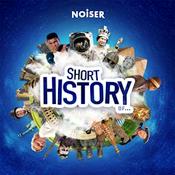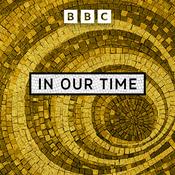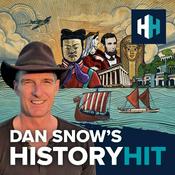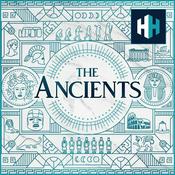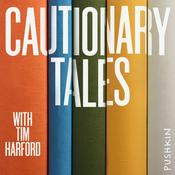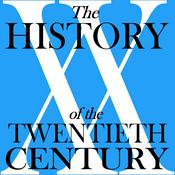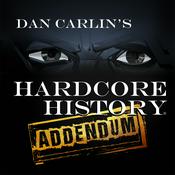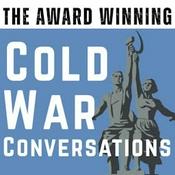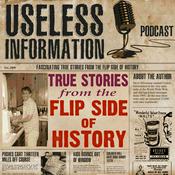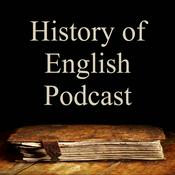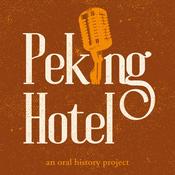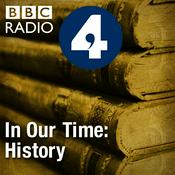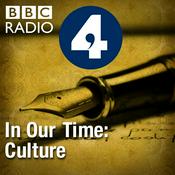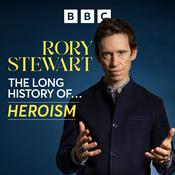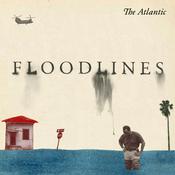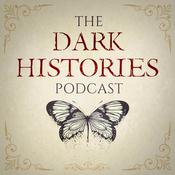37 episodes
- Naomi Alderman returns with her series that explores the minds of the greatest thinkers in history. From political theorists to scientists to inventors, authors and artists. Our world is based on their ideas and innovations. How did they do their work, what did they struggle with, where did they find their dedication, creativity and inspiration?
Against the wishes of her family, American dancer and choreographer Martha Graham pursued a career on the stage, touring the United States as a vaudeville star, even making it to Broadway. But the classic traditions of dance weren’t enough for her. She sought perfection – the perfect encapsulation of the human experience, in movement. Modernist ideals were changing artistic expression across mediums, and the Graham technique distilled those ideals for dance. Her visceral work catapulted her to fame. As her reputation grew she never stopped exploring, looking to everything from Greek myth to Jungian psychology for inspiration, pushing to explore the passions and pains of the human experience.
Special thanks to Paul Jackson, Reader in Choreography and Dance at the University of Winchester and Choreography Instructor at the Central School of Ballet.
Produced by BBC Studios in partnership with The Open University.
Presenter: Naomi Alderman
Executive Editor: Philip Sellars
Production Co-ordinator: Amelia Paul
Researchers: Harry Burton, Martha Owen and Victoria Brignell
Mix Engineer: Nigel Appleton
Series Producer: Anishka Sharma
Production Manager: Jo Kyle - Naomi Alderman returns with her series that explores the minds of the greatest thinkers in history. From political theorists to scientists to inventors, authors and artists. Our world is based on their ideas and innovations. How did they do their work, what did they struggle with, where did they find their dedication, creativity and inspiration?
Da Vinci had insatiable curiosity, a deep desire to observe and understand the world around him. The curiosity that drove him to learn everything he could and brought a depth of understanding to the works he produced. His obvious genius put him in high demand – but Da Vinci was a careful man, taking years to complete each commission and frequently never finishing them at all. He was looking for perfection and seemed not to mind taking years to achieve it.
Special thanks to Catherine Fletcher, Professor of History at Manchester Metropolitan University.
Produced by BBC Studios in partnership with The Open University.
Presenter: Naomi Alderman
Executive Editor: Philip Sellars
Production Co-ordinator: Amelia Paul
Researchers: Harry Burton, Martha Owen and Victoria Brignell
Mix Engineer: Nigel Appleton
Series Producer: Anishka Sharma
Production Manager: Jo Kyle - Naomi Alderman returns with her series that explores the minds of the greatest thinkers in history. From political theorists to scientists to inventors, authors and artists. Our world is based on their ideas and innovations. How did they do their work, what did they struggle with, where did they find their dedication, creativity and inspiration?
In the early 9th century Baghdad was the centre of the world, and within Baghdad the Bayt al-Hikma – the House of Wisdom – was the centre of scholarship. And in that centre, the Al-Khawarizmi was working to revolutionise our understanding of mathematics. This revolution would be outlined in his book, Al-Jabr, from which we get the word algebra. While arithmetic and geometry date back to the ancient Greeks and Babylonians, Al-Khawarizmi sought to outline a recipe that could be applied to multiple situations. A formula that would unlock a greater understanding of calculation.
In his own lifetime his impact was immense, from popularising the use of Hindu numerals, to large infrastructure projects. But his impact today is even greater. He laid the foundations on which we all walk.
Special thanks to Jim Al-Khalili, professor of theoretical physics and chair in public engagement in science at the University of Surrey.
Produced by BBC Studios in partnership with The Open University.
Presenter: Naomi Alderman
Executive Editor: Philip Sellars
Production Co-ordinator: Amelia Paul
Researchers: Harry Burton, Martha Owen and Victoria Brignell
Mix Engineer: Nigel Appleton
Series Producer: Anishka Sharma
Production Manager: Jo Kyle - Naomi Alderman returns with her series that explores the minds of the greatest thinkers in history. From political theorists to scientists to inventors, authors and artists. Our world is based on their ideas and innovations. How did they do their work, what did they struggle with, where did they find their dedication, creativity and inspiration?
Raised in an environment of deep, committed learning, Weil studied Marx and Descartes. But by adulthood she was frustrated with the intellectualisation of the plight of the poor. It was not enough, for Weil, to learn about or to discuss the lives of factory workers – she felt it was crucial to experience their lives first-hand. Weil’s was a perfectionism of the spirit, a demand to understand every human life in the ways in which it is unlike every other. But did her perfectionism lead her astray?
Special thanks to Professor Anna Rowlands at the Department of Theology and Religion at Durham University.
Produced by BBC Studios in partnership with The Open University.
Presenter: Naomi Alderman
Executive Editor: Philip Sellars
Production Co-ordinator: Amelia Paul
Researchers: Harry Burton, Martha Owen and Victoria Brignell
Mix Engineer: Nigel Appleton
Series Producer: Anishka Sharma
Production Manager: Jo Kyle - Naomi Alderman returns with her series that explores the minds of the greatest thinkers in history. From political theorists to scientists to inventors, authors and artists. Our world is based on their ideas and innovations. How did they do their work, what did they struggle with, where did they find their dedication, creativity and inspiration?
A highly skilled engineer, Isambard Kingdom Brunel was driven by a desire to be the best, to achieve perfection in everything he built. From the Clifton Suspension Bridge to Paddington Station, Brunel’s work left indelible stamps on Britain. Unconcerned with cost and willing to put himself and his workers at risk to achieve his goals, his need for perfection perhaps went too far, by today’s standards. He had a vision for a future that, in his own time, seemed impossible: one where people could travel by smooth, comfortable, fast railways.
Special thanks to Tim Bryan Brunel curator at the SS Great Britain in Bristol.
Produced by BBC Studios in partnership with The Open University.
Presenter: Naomi Alderman
Executive Editor: Philip Sellars
Production Co-Ordinator: Amelia Paul
Researchers: Harry Burton, Martha Owen and Victoria Brignell
Mix Engineer: Nigel Appleton
Series Producer: Anishka Sharma
Production Manager: Jo Kyle
More History podcasts
Trending History podcasts
About Human Intelligence
In Human Intelligence, Naomi Alderman dissects the minds of brilliant thinkers from the past; examining the myriad ways in which humans think and realising that great minds don't, in fact, think alike.
Podcast websiteListen to Human Intelligence, Short History Of... and many other podcasts from around the world with the radio.net app
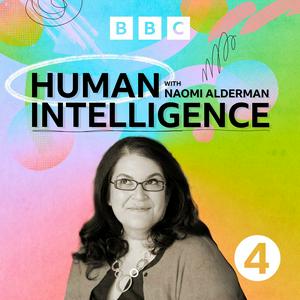
Get the free radio.net app
- Stations and podcasts to bookmark
- Stream via Wi-Fi or Bluetooth
- Supports Carplay & Android Auto
- Many other app features
Get the free radio.net app
- Stations and podcasts to bookmark
- Stream via Wi-Fi or Bluetooth
- Supports Carplay & Android Auto
- Many other app features


Human Intelligence
Scan code,
download the app,
start listening.
download the app,
start listening.


